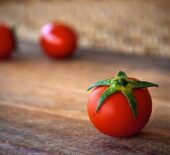Every woman will move into menopause during her lifetime with healthy ageing. It is not a diseased state or to be feared. Perimenopause and menopause can be considered a second phase of a woman’s life. This period is marked by both physiological and psychological changes.
Perimenopause is a transition which occurs around the menopause time. This is the phase before menopause. It is a transitionary period and a natural process when your ovaries stop working. It is around five to ten years before menopause. Menopause is a one-time moment. The twelve-month anniversary of your last period.
Most women start to experience perimenopause at a physiological perspective in their late thirties and most women start to experience symptoms e.g. hot sweats and flushes around the late forties’. Typically, the symptoms are due to the changing of the hormones which include oestrogen, progesterone, and testosterone.
There are potential health benefits of a later onset of menopause. This includes a reduced risk of certain hormone-related cancers such as breast and uterine cancer. A later onset of menopause is also linked to a longer lifespan due to the protective effects of sex hormones on your heart and bones. A recent study of fourteen thousand women aged between forty and sixty-five from the UK found surprising links between the diet of women and when menopause begins (1).
The Good
The two foods which slowed the onset of menopause were oily fish and legumes. Oil fish includes seafood like sardines, mackerel, herring, and sardines. Legumes included lentils and chickpeas.
The reason these foods may help slow the onset of menopause may be due to their antioxidant properties. The antioxidants may help to slow the rate of follicular atresia or the natural loss of your egg follicles over your lifetime. In other words, more antioxidants in your diet, leads to greater protection to your ovaries and as a result may slow the onset of menopause.
The Bad
Foods found to potentially speed up the onset of menopause were refined carbohydrates. This included foods like white pasta and white rice. The potential reason behind this could be that these foods have a higher glycaemic index and spike your blood sugar levels. This over time can be a risk factor to increasing your insulin resistance levels.
Insulin resistance can lower your levels of sex hormone-binding globulin (SHBG). Sex hormone-binding globulin may affect your oestrogen balance and speed up the depletion of your ovarian follicles.
Take a Holistic Approach
While single foods have been identified to potentially have a positive or negative impact on the rate you begin menopause it is important to remember that no one single food can delay onset of menopause. This research does reinforce the deep connection of your gut, your diet choices and your hormones. Especially during life phases of perimenopause and menopause.
Some proactive lifestyle additions you can add into your diet today could be:
- Including one hundred grams of cooked oily fish two to three times a week.
- Adding in more legumes and beans. Legumes and beans are great in a salad, as part of a sauce, can reduce the quantity of meat in taco beef mince or spaghetti bolognaise.
- Add more fibre from produce, wholegrains like oats, Weetbix, wholegrain bread and pasta, brown, red or black rice, wholegrain couscous and wholegrain crackers and quinoa. Also adding nuts and seeds.
- Add soy products to your diet like miso, tempeh, edamame, soybeans and soy milk. Two serves a day are recommended.
These foods support the health of your gut which in turn support the health of your hormones.
If you are seeking more individualised support, reach out to Feed Your Future Dietetics today!

References:
- Dunneram Y, Greenwood DC, Burley VJ, Cade JE. Dietary intake and age at natural menopause: results from the UK Women's Cohort Study. J Epidemiol Community Health. 2018 Aug;72(8):733-740. doi: 10.1136/jech-2017-209887. Epub 2018 Apr 30. PMID: 29712719; PMCID: PMC6204950.
- Sun Y, Liu B, Snetselaar LG, Wallace RB, Shadyab AH, Kroenke CH, Haring B, Howard BV, Shikany JM, Valdiviezo C, Bao W. Association of Major Dietary Protein Sources With All-Cause and Cause-Specific Mortality: Prospective Cohort Study. J Am Heart Assoc. 2021 Feb;10(5):e015553. doi: 10.1161/JAHA.119.015553. Epub 2021 Feb 24. PMID: 33624505; PMCID: PMC8174240.
- Zhang L, Zhao L, Xiao X, Zhang X, He L, Zhang Q. Association of dietary carbohydrate and fiber ratio with postmenopausal bone mineral density and prevalence of osteoporosis: A cross-sectional study. PLoS One. 2024 Feb 14;19(2):e0297332. doi: 10.1371/journal.pone.0297332. PMID: 38354209; PMCID: PMC10866481.
- Moore, Sam R. MS1,2; Cabre, Hannah E. PhD1,2; Smith-Ryan, Abbie E. PhD1,2. Body composition, physical activity, and menopause symptoms: how do they relate?. Menopause 31(4):p 336-341, April 2024. | DOI: 10.1097/GME.0000000000002334
- Episode 41 – Perimenopause and menopause: Can nutrition (and nuts) help?Nuts for Life. https://www.nutsforlife.com.au/resource/episode-41-perimenopause-and-menopause-can-nutrition-and-nuts-help/








